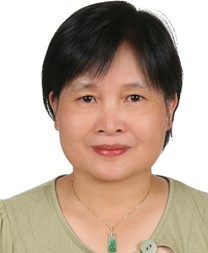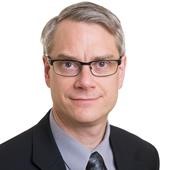 |
演 講 者:張麗鳳 技術長
經濟部技術處新世代通訊技術推進辦公室
演講主題:Journey to 5G
演講時間:2019年1月24日09:50~10:30(百合廳) |
Abstract
The cellular industry is geared for 5G field trials, and launch of commercial services in 2019 and 2020 by operators. In the meantime, field trials/testbeds for non-traditional vertical applications are also being deployed worldwide to explore new services and to create new business models associated with these services. Though commercial launches of 5G services are expected in 2020-2021 time frame, it is a general consensus that eMBB service will be offered initially. It is also believed that 4G and 5G networks will likely co-exist and remain complementary for many years from operator point of view. Once 5G commercial system is launched, what will be next beyond 2020-21? In this talk, an overview of world-wide 5G activities including standardization, trials, spectrum policy will be presented first followed by summary of on-going/planned field trials/testbeds in Taiwan. We will then discuss “what next” from short term and long term perspective.
Biography
Dr. Li Fung Chang is the Chief Architect (2015-present) of the national 5G program funded by the DoIT (Department of Industrial Technology) / MoEA (Ministry of Economic Affairs) in Taiwan. In this role, she is responsible for setting up 5G master plan, strategy direction for this program as well as providing technical consultation and guidance to the engineering teams working under this project. Prior to this position, she was a Senior Director of Engineering at Broadcom Corp, - Mobile and Wireless Group and led Broadcom system team to support multi-mode 2G/3G/4G cellular SOC modem design/implementation across multi-sites. She is a veteran from AT&T research Labs and Telcordia. Dr. Chang holds over 85 US patents and many international patents in the area of wireless communications. She is a Chair Professor with NCTU (National Chiao Tung University, HsinChu, Taiwan), fellow of the IEEE (2001), senior consultant at ITRI and III, Taiwan. She received her Ph.D. degree from University of Illinois-Urbana-Champaign in 1985 and was a visiting research graduate student at Caltech from Dec. 1982-1985.
 |
演 講 者:Professor Erik G. Larsson
Department of Electrical Engineering,
Linköping University
演講主題:Massive MIMO -- lessons learned and the road ahead
演講時間:2019年1月25日09:00~10:00(百合廳) |
Abstract
Massive MIMO is the currently most compelling sub-6 GHz wireless access technology. Since its inception about a decade ago, it has evolved from a wild academic idea to being one of the most vibrant research topics in the wireless communications community, and a main component of upcoming 5G standards. The concept is to equip base stations with large arrays of many small antennas that serve many terminals simultaneously, in the same time-frequency resource. In this talk I will give an overview of Massive MIMO, and discuss some important lessons learned during the development of the fundamental theory behind this technology. Furthermore I will discuss current research topics and contributions, including algorithms that facilitate massive machine-type communications (mMTC) and grant-free random access. I will also discuss some common misconceptions, including aspects that concern implementation and effects of hardware impairments.
Biography
Erik G. Larsson is Professor at Linköping University, Sweden, and a Fellow of the IEEE. He co-authored Fundamentals of Massive MIMO (Cambridge, 2016) and Space-Time Block Coding for Wireless Communications (Cambridge, 2003). Recent service includes membership of the IEEE Signal Processing Society Awards Board (2017–2019), and the IEEE Signal Processing Magazine editorial board (2018–2020). He received the IEEE Signal Processing Magazine Best Column Award twice, in 2012 and 2014, the IEEE ComSoc Stephen O. Rice Prize in Communications Theory 2015, the IEEE ComSoc Leonard G. Abraham Prize 2017 and the IEEE ComSoc Best Tutorial Paper Award 2018.
 |
演 講 者:Professor Wei Yu
Electrical and Computer Engineering Department,
University of Toronto
演講主題:Spatial Deep Learning for Wireless Scheduling
演講時間:2019年1月25日10:30~11:30(百合廳) |
Abstract
The optimal scheduling of interfering links in a dense wireless network with full frequency reuse is a challenging task. In this talk, we first propose a novel fractional programming method to solve this problem, then point out that the traditional optimization approach of first estimating all the interfering channel strengths then optimizing the scheduling based on the model is not always practical, because channel estimation is resource intensive, especially in dense networks. To address this issue, we investigate the possibility of using a deep learning approach to bypass channel estimation and to schedule links efficiently based solely on the geographic locations of transmitters and receivers. This is accomplished by using locally optimal schedules generated using fractional programming for randomly deployed device-to-device networks as training data, and by using a novel neural network architecture that takes the geographic spatial convolutions of the interfering or interfered neighboring nodes as input over multiple feedback stages to learn the optimum solution. The resulting neural network gives good performance for sum-rate maximization and is capable of generalizing to larger deployment areas and to deployments of different link densities. Further, we propose a novel approach of utilizing the sum-rate optimal scheduling heuristics over judiciously chosen subsets of links to provide fair scheduling across the network, thereby showing the promise of using deep learning to solve discrete optimization problems in wireless networking.
Biography
Wei Yu (S'97-M'02-SM'08-F’14) received the B.A.Sc. degree in Computer Engineering and Mathematics from the University of Waterloo, Waterloo, Ontario, Canada in 1997 and M.S. and Ph.D. degrees in Electrical Engineering from Stanford University, Stanford, CA, in 1998 and 2002, respectively. Since 2002, he has been with the Electrical and Computer Engineering Department at the University of Toronto, Toronto, Ontario, Canada, where he is now Professor and holds a Canada Research Chair (Tier 1) in Information Theory and Wireless Communications. His main research interests include information theory, optimization, wireless communications and broadband access networks.
Prof. Wei Yu currently serves on the IEEE Information Theory Society Board of Governors (2015-20). He was an IEEE Communications Society Distinguished Lecturer (2015-16). He serves as an Area Editor for the IEEE Transactions on Wireless Communications (2017-20). He served as an Associate Editor for IEEE Transactions on Information Theory (2010-2013), as an Editor for IEEE Transactions on Communications (2009-2011), as an Editor (2004-2007) for IEEE Transactions on Wireless Communications, and as a Guest Editor for a number of special issues for the IEEE Journal on Selected Areas in Communications and the EURASIP Journal on Applied Signal Processing. He was a Technical Program co-chair of the IEEE Communication Theory Workshop in 2014, and a Technical Program Committee co-chair of the Communication Theory Symposium at the IEEE International Conference on Communications (ICC) in 2012. He is currently the Chair of the Signal Processing for Communications and Networking Technical Committee of the IEEE Signal Processing Society (2017-18) and served as a member in 2008-2013. Prof. Wei Yu received the IEEE Signal Processing Society Best Paper Award in 2017 and 2008, the Journal of Communications and Networks Best Paper Award in 2017, an E.W.R. Steacie Memorial Fellowship in 2015, an IEEE Communications Society Best Tutorial Paper Award in 2015, an IEEE ICC Best Paper Award in 2013, the McCharles Prize for Early Career Research Distinction in 2008, the Early Career Teaching Award from the Faculty of Applied Science and Engineering, University of Toronto in 2007, and an Early Researcher Award from Ontario in 2006. He is recognized as a Highly Cited Researcher.
Prof. Wei Yu is a Fellow of IEEE and a Fellow of Canadian Academy of Engineering. He is a member of the Royal Society of Canada's College of New Scholars, Artists and Scientists. He is a registered Professional Engineer in Ontario.